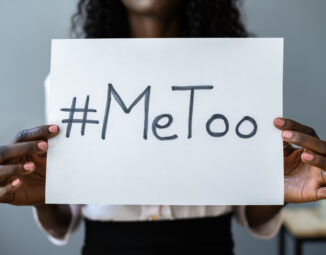Waiving Goodbye: Supreme Court Says Prejudice No Longer Required to Establish Employer Waived Right to Arbitrate Employee’s Claims
Employers sometimes favor resolving disputes with their employees in arbitration as opposed to in front of a jury. Such a private tribunal may streamline discovery procedures, offer a quicker resolution, and, theoretically, avoid the uncertainty and appeals to emotion inherent with allowing a jury to decide an employment dispute such as a discrimination claim. Although arbitration agreements in the employment realm generally remain enforceable under the Federal Arbitration Act (“FAA”), it is not due to a lack of effort on the part of state and federal legislatures. Be it the federal government amending the FAA to prohibit pre-dispute arbitration agreements in sexual harassment cases (previously covered by HR Legalist here), California’s attempt to expressly ban mandatory arbitration agreements as a condition of employment, or New Jersey’s attempt to accomplish that same goal with a little more subtlety, mandatory arbitration agreements for employees are under increasing attack.
Recently, the Supreme Court of the United States in Morgan v. Sundance, Inc. created another potential pitfall for employers in this arena when it made it easier for employers to, perhaps inadvertently, relinquish their rights under an otherwise valid arbitration agreement. Known in legalese as the concept of “waiver,” a court will not enforce an arbitration agreement (or any other contract) where a party to the agreement—which is nearly always the employer—takes action that is inconsistent with an intent to exercise their right to arbitration. The doctrine is meant to stop an employer from dipping their toe in the Court’s water with a motion to dismiss, then turning around and seeking to move the case into arbitration if they don’t get the result they want in court. In other words, no playing Hokey Pokey; your left foot is either in or it’s out. The employer must pick a venue and stick with it.
Until recently, establishing waiver required not only showing such inconsistent action, but also that the employer’s action must have had some negative impact on the employee’s case, a term referred to as “prejudice.” Put differently, the employer’s action had to have mattered to the employee in some way. The Supreme Court in Morgan unanimously eliminated this requirement. Instead, where the employer had filed a motion to dismiss in the trial court and participated in an unsuccessful mediation, and only then sought to compel the case to arbitration after eight months, the question of whether this caused the employee prejudice was deemed irrelevant to whether the employer had acted inconsistently with its rights under the arbitration agreement, which is how the issue of waiver is analyzed with respect to any other contract. In short, the issue of waiver in the context of arbitration agreements no longer has an added “prejudice” requirement not found with respect to any other contract.
What does this mean for employers? While it is easy to agree with the Supreme Court’s decision in the unsympathetic scenario where an employer tries to get two bites at the apple, that is not always the case. Sometimes arbitration agreements are misplaced or are buried in a voluminous personnel file, only to be discovered after litigation in court is already underway. The prejudice requirement provided a backstop for employers to avoid an inadvertent waiver of their contractual rights in such a scenario, but Morgan eliminated that lifeline. It is therefore critical that employers, when they receive notice of a lawsuit, immediately conduct a search for any applicable arbitration agreements and promptly provide any such agreements to their counsel so all options remain on the table to defend the lawsuit.
Should you have any questions regarding arbitration agreements, please do not hesitate to contact an Obermayer attorney.
The information contained in this publication should not be construed as legal advice, is not a substitute for legal counsel, and should not be relied on as such. For legal advice or answers to specific questions, please contact one of our attorneys.





